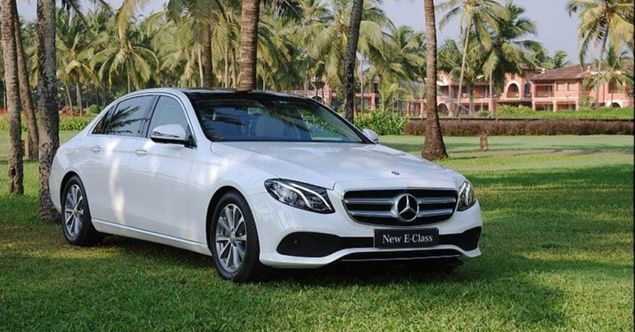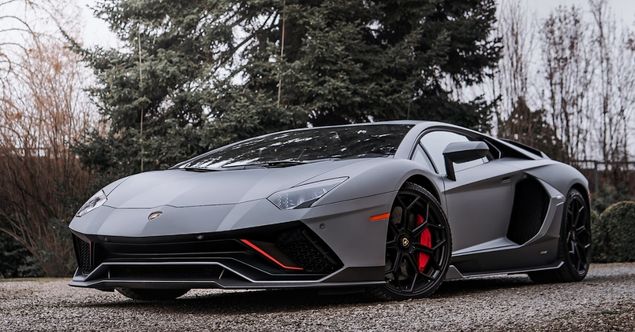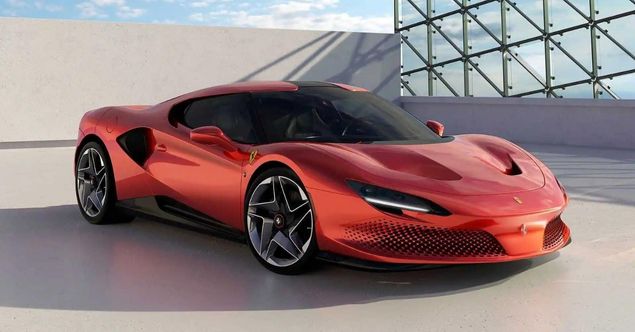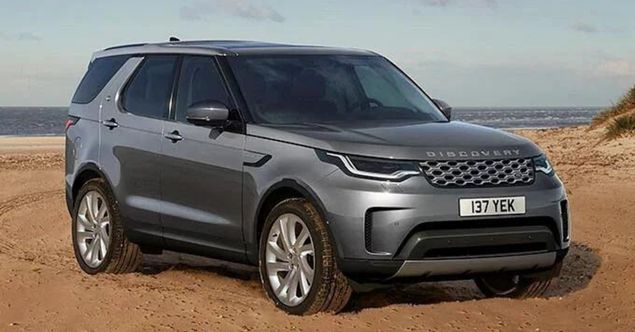Top 10 Luxurious Car Brands
Are you looking to buy a luxurious car that stands out and offers the highest levels of luxury? Luxurious cars come at a steep price, and it’s important to understand the differences between different brands.
Having a top-of-the-range car is a symbol of affluence; it is the fastest and most expensive way to travel in style. Not all cars are created equal when it comes to luxury, and some stand much higher than others in terms of quality.
The best luxury car brands in the world are a reliable predictor of future sales of brands and the trends that are shaping the global automobile industry. But bringing new vehicles to market is no easy task for the brands.Years of research, development, and testing are needed, even for models that fit the mold.
From ultra-luxury supercars to executive saloons, there are many brands that claim to offer an exceptional experience behind the wheel.
This article will outline the top 10 car brands for those who seek ultimate luxury on wheels.
We’ll look at their features, performance capabilities and overall appeal so you can make an informed decision about which brand is best suited for you.
1. Mercedes-Benz

Mercedes-Benz ranks at the top on the list of top 10 luxurious car brands list. Mercedes-Benz, 2023 marked the year it decided to bring in a new era in the car world. Its rapid expansion of an electric lineup brings Mercedes-Benz to the top of this list.
The only problem is that internal combustion engines are lagging behind.
The electric flagship Mercedes-Benz EQS is completed with S-Class luxury and produces up to 516 horsepower and 631 lb-ft of torque.
Mercedes-Benz is across all the limits of futuristic designs with the jaw-dropping Vision AMG and Vision EQXX.
- Founded: June 28, 1926
- Founder: Karl Benz, Gottlieb Daimler
- Country of origin: Germany
- Most popular models: Mercedes-Benz EQS, Mercedes-Benz EQE AMG, Mercedes-Benz G Wagon.
- Average starting price: $60,000
- Features: Mercedes-Benz takes pride in offering an accident investigation program to help them determine the most likely scenario for an accident such as groundbreaking technology, which includes Pre-Safe, Attention Assist, and many others.
- Capabilities: Each Mercedes-Benz model offers exhilarating performance, sophisticated style and intelligent technology.
2. Tesla

Tesla isn’t a newcomer to EV technology in 2023, and yet it still makes serious advancements across its lineup. The flagship Model S Plaid will now come with a boost tri-motor powertrain with a whopping 1,020 hp and 1,050 lb-ft of torque, and the Model 3 packs a punch with amazing performance equal to other EVs double its cost.
Unless you’ve been living under a rock, you’ve probably noticed that Tesla’s co-founder and CEO, Elon Musk, has been making a splash in headlines across the globe. Unfortunately for Tesla, the spike in online search interest might not translate to future sales boost like the rest on this list.
- Founded: 1 July 2003
- Founder: Elon Musk, JB Straubel, Martin Eberhard, Marc Tarpenning, Ian Wright.
- Country of origin: United States
- Most popular models: Tesla Model 3, Tesla Model Y, Tesla Model S
- Average starting price: $115,000
- Features: A sharp edge-to-edge design built around a screen that packs almost everything on the dashboard of a regular car, the Tesla Model 3’s interior is minimalistic, functional and superbly sleek. Tesla, the software updates let you to access all the new features on a regular basis
- Capabilities: Advanced hardware capable of providing Autopilot features, and full self-driving capabilities
3. BMW

Staying at the forefront of the top car brands is not an easy task. Their lack of significant shake ups for BMW moves them off the top spot and down to number three. BMW is still well-positioned with many EV offerings and an extensive lineup of hybrid and ICE vehicles to fit any individual’s desire.
As the first electric SUV by BMW, one of the most reliable luxury car brands in 2023 the BMW iX is poised to increase sales in the ever-growing crossover SUV segment in the world. It comes on a dual-motor AWD platform and is ready to go head-to-head with the best. The all-new BMW i4 sport sedan brings BMW’s new EV fleet.
Other BMW’s 2022 highlights included a reincarnated 2 Series, a first-time AWD 3 Series, and a 627-horsepower M5 CS.
- Founded: March 7, 1916
- Founder: Camillo Castiglioni, Franz Josef Popp, Karl Rapp
- Country of origin: Germany
- Most popular models: BMW X5, BMW 1 Series
- Average starting price: $45,600
- Features: BMW doesn’t take any chances when it comes to safety. As a result, they have some of the most cutting-edge safety systems available in their vehicles. BMW keeps you prepared with lane departure warnings and blind spot detection. And their vehicles are built to reduce damage to you and your passengers in the event of an accident.
- Capabilities: The idea of building a carbon fibre plant is a perfect example of the company’s efforts to develop its dynamic capability.
4. Volvo

Five more of its models to the IIHS Top tier Safety Pick Plus list, to its raised paid parental leave and a humongous rise in sales across the first 3 months of the year 2022.
Volvo aims to increase its market share in the electric vehicle sector, it also hopes to boost retention rates and talent acquisition through a huge range of encouraging new policies.
According to Volvo’s CEO, the motto is to become an all-electric vehicle manufacturer by 2030. The brand’s shift towards the luxury vehicle sector, combining Scandinavian minimalism with electric power, encourages a bigger conversation about making luxe vehicles nature friendly and safe.
- Founded: 1927
- Founder: Assar Gabrielsson, Gustav Larson
- Country of origin: Sweden
- Most popular models:Volvo XC60, Volvo XC40, Volvo XC90
- Average starting price: $45,000
- Features: Impressive off-road ability, groundbreaking safety features, turbocharged power and economy, elegant Swedish design, and leading practicality.
- Capability: Volvo is known for its safety features and the brand was the first to come with the three-point seat belt capability, followed by the seat belt reminder and the side impact protection system.
5. Audi

Audi remains high on the list by improving its EV offerings and unique tech features. The launch of the Audi Q4 E-tron crossover SUV adds to the existing Audi E-tron SUV and E-tron GT sedan. There is now an Audi EV segment in the most popular body styles.
Audi is bringing out Amazon Alex integration, allowing you to control your at-home functions from your vehicle, as well as a better version of Audi’s Personalization 2.0, bringing an organised profile with climate control, locking, lighting, and seat settings to any Audi vehicle.
And if you’re tired of waiting at red lights, Audi has a great feature called Traffic Light Information (TLI). By leveraging vehicle-to-infrastructure (V2I) swarm technology, your vehicle can perfectly predict the proper speed to see nothing but a bunch of green lights ahead.
- Founder: August Horch
- CEO: Markus Duesmann
- Country of origin: Germany
- Most popular models: Audi A3, Audi A4, Audi Q5
- Average starting price: $70,000
- Features: The Audi A4 has 1 Petrol Engine. The Petrol engine is 1998 cc . It is also available with Automatic transmission. Depending upon the variant and fuel type the A4 has a mileage of. The A4 is a 5 seater 4 cylinder car and has a length of 4762mm, width of 1847mm and a wheelbase of 2819mm.
- Capability: This German luxury brand is known for technology and style as much as its amazing performance, well-crafted interiors, and its trademark Quattro all-wheel-drive system.
6. Porsche

Porsche provides the ultimate customization across its host of thrilling sports cars, electric vehicles, and SUVs, luxurious car brands list.
Releasing an all-new 2022 Porsche 911 GT3 was aimed at providing the most rewarding driving experience available in the world. Taking that same flat-six engine and stuffing it into the 2023 Cayman GT4 RS with a 0 to 60 mph time of just 3.2 seconds.
The Porsche Taycan EV is now available as a GTS model with improved mode and 590 horsepower. Additionally, many advancements have been added to the Porsche Connect voice-controlled system to make your life with their models.
- Founded: 1931
- Founder: Ferdinand Porsche
- Country of origin: Germany
- Most popular models: Porsche Macan, Porsche 911, Porsche Cayenne
- Average starting price: $175,000
- Features: Door puddle lights that project the word Porsche on the ground when you open the door give an amazing feeling and its unique gas cap with the Porsche logo on it. Rounded LED headlights and rounded body curves give a great feature to the car.
- Capability: It has standard AC, automatic climate and air quality control. Adjustable steering column, electronic multi – trip meter, tachometer and digital clock and odometer are some of its amazing capabilities.
7. Lexus

Lexus has stated the goal of carbon neutrality by 2050, but the 2035 aim of becoming fully battery-electric is a lofty target for a brand that is barely making it to the scene.
The Lexus RX is all set to get an overhaul and has brought a lot of positive attention in 2023, but the only EV in the lineup, the new RZ 450e, is the first sign that Lexus might be able to transition into the future of EV cars.
Let’s not forget that Lexus continually prioritizes fuel efficiency and gives many hybrid vehicles. At the same time, the popular F Sport performance package offers top performance for those who want it.
- Founded: 1998
- Founder: Eiji Toyoda
- Country of origin: Japan
- Most popular models: Lexus RX, Lexus CT 200h, Lexus LS
- Average starting price: $63,000
- Features: Lexus vehicles are best known for having high-reliability ratings and handsome cabins.
- Capability: Capability to detect motorcycles and oncoming traffic, to cruise-control technology that can help detect an upcoming curve.
8. Lamborghini

The giant V10 and V12 engines sitting in the incredible Lamborghini cars aren’t in demand, but soon enough, all luxury car brand’s logos will be on EVs 2023. Lamborghini has launched so that it won’t get left behind, keeping it at number eight on this list.
Last year was the final year that Lamborghini vehicles used exclusively internal combustion engine power. To get a glimpse into the future of these expensive luxury cars, turn to the Lamborghini Terzo Millennio concept car, which comes with an electric drivetrain with aggressive styling and amazing performance ubiquitous to the Lamborghini name.
- Founded: 1963
- Founder: Ferruccio Lamborghini
- Country of origin: Italy
- Most popular models: Lamborghini Huracan, Gallardo.
- Average starting price: $340,000
- Features: Special features of Lamborghini are automatic climate control, premium leather materials, power seating, air filtration, power features, performance speakers, and LCD monitors.
- Capability: There is something special about Lamborghinis such as the vehicle includes vertically opening doors.
9. Ferrari

The upcoming Ferrari 296GTB comes with a V-6 Hybrid Powertrain from the Italian luxury car brand. Ferrari has not only been reaching forward with three plug-in hybrid models but is racing ahead with a host of lofty green goals: a battery electric vehicle by 2025 and carbon-neutral production by 2030.
The last year the brand released the Ferrari Purosangue (Italian for “Thoroughbred”) sticks to the tried and true formula of sticking a roaring V12 engine under the hood, even though it is the first-ever luxury SUV for the automaker.
Ferrari expects to release fifteen new models before 2026. Pushing forward with innovation while placing sustainability at the point is likely to pay dividends for Ferrari, one of the top car brands in the world.
- Founded: 1939
- Founder: Enzo Ferrari
- Country of origin: Italy
- Most popular models: Ferrari Dino, Ferrari 365 GTB/4 Daytona, Ferrari F40
- Average starting price: $410,000
- Features: The “flat plane” crankshaft engine is what Ferrari is known for. Without getting too technical, it’s a design where the pistons and counterweights are in a single line creating an alternating firing order between the two cylinder banks.
- Capabilities: Over the years, Ferrari vehicles have offered anywhere from just over 100 to just over 1,000 hp
10. Land Rover

This luxury car brand has made a name for itself as the leader in vehicles that can conquer the world Car category while filling the interior with opulence and comfort. Land Rover is preparing for the future with a host of electric Vehicles and hybrid models.
Seven new models are to be released within the next three years, adding to the extensive amazing lineup of the most luxurious Range Rover, the crossover Evoque, and the trail-focused Defender series. The first completely electric offering will come on a Range Rover with an expected range of 300 miles or more.
- Founded: 1978
- Founder: British Leyland
- Country of origin: United Kingdom
- Most popular models: Land Rover Discovery Sport, Land Rover Range Rover, Land Rover Defender.
- Average starting price: $145,000
- Features: Range Rover gets a smooth, relaxing drive by adjusting its height through the Electronic Air Suspension. It also lowers the vehicle for getting access to the loadspace, and Automatic Access Height lets you have an elegant arrival.
- Capabilities: A maximum towing weight of up to 3 500 kg means Range Rover can manage the most demanding of tasks with ease. With the Electrically Deployable Towbar, Advanced Tow Assist, Hitch Assist & Trailer Stability Control, the vehicle exemplifies towing refinement & capability.
Summary
The automotive industry is an integral part of the global economy, producing vehicles that efficiently transport people and goods within nations and across complete regions. These are the top 10 luxurious car brands in the world.
The biggest auto manufacturers have a large global footprint, selling vehicles to consumers and businesses across the globe. These big companies are mainly headquartered in just a few countries that lead the industry.
FAQ’s on Communication:
Must read articles: